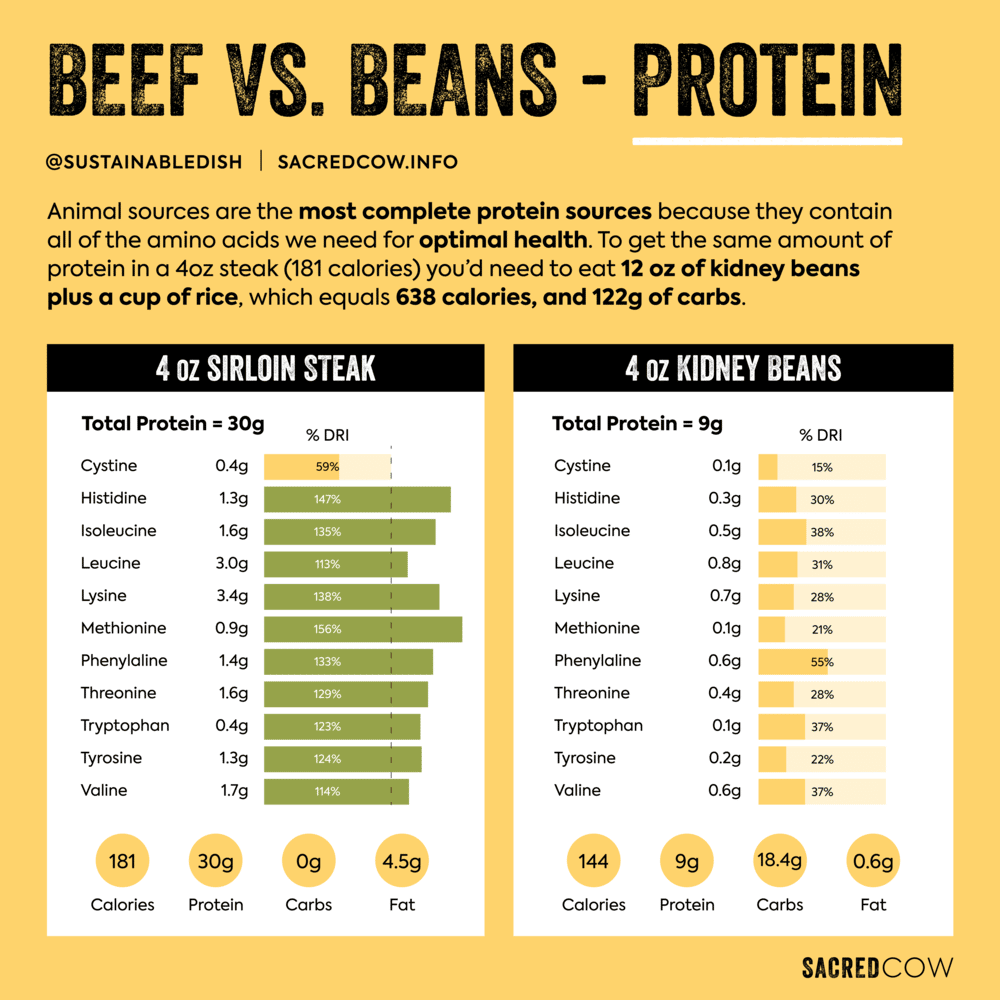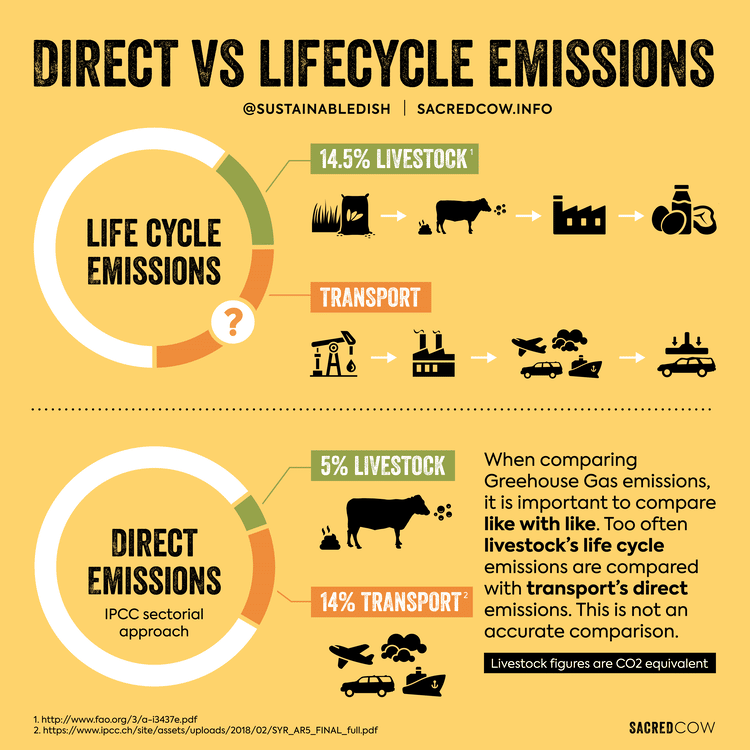“Tell me what you eat, and I will tell you what you are”
Thomas Jefferson April 1, 1755 –February 2, 1826
As part of our ongoing foundation series, this nutrition article will cover everything you need to know about protein. Many of us already understand protein is important to build muscle and repair tissue, but there are also many falsehoods that are out there, such as “red meat is bad for you” or “animal farming is not environmentally sustainable”.
Protein is a ‘macronutrient’, which simply means it is an important part of our nutrition that we need to get good amounts of. Protein is made up of things called amino acids (AA’s), so if you ever hear of amino acid profiles, they are simply the constituent parts to build protein. Protein’s main functions are to regenerate tissue, so for example building muscle tissue. But protein can be beneficial for numerous reasons:
- Muscle mass – ideal for ageing populations and preventing Sarcopenia.
- Fat loss – protein is needed to retain muscle tissue and thus keep metabolism high (1).
- Tissue regeneration – protein forms connective tissues which are structurally important for the body.
- Hormones & neurotransmitters – many chemical messengers in the body are proteins!
- Satiety – protein helps with the feeling of fullness (2).
- Health markers – protein can stabilise blood sugar levels, help liver detoxification and help inflammation (3, 4).
How much do I need?
Protein should be included at each of your main meals throughout the day, and also during and after training sessions. Numbers-wise, protein should be in the range of 20-45% of your total calories per day, or an alternative metric would be to get 1.6 – 3.0 grams of protein per kilogram of body weight each day. All depending on your goal! Another measurement I use without getting lost with numbers and to make things easier would be to use the size of your palm of your hand as a measurement tool for the amount of protein on your plate.
So within this range of protein, where should you aim to be?
The higher-end is perfect if you are training hard and frequently (e.g 3-4+ intense sessions per week), aim to build muscle and strength, and also if your goal is fat loss.
The middle of the range is suited to athletes and those people who train regularly (i.e 2-4 times per week).
The lower end of this range of protein is better for older populations, those with chronic illness and people with high stress.
A general nutrition plan which would work for most people would look something like this:
- Breakfast: 4 eggs (any style), sauerkraut, steamed vegetables = approximately 24 grams of protein.
- Lunch: salad with 250g of sliced chicken breast = approximately 50 grams of protein.
- Snack: one ounce of almonds (about 23 almonds) = approximately 6 grams of protein.
- Dinner: 250g grilled beef sirloin, sweet potato, steamed broccoli = approximately 60 grams.
Supplementing Protein
Protein supplements need to be high quality, sourced well, tolerable and bioavailable…essentially you need something which comes from quality sources, without compromising side effects and actually delivers protein efficiently to your body.
Most people will supplement with a whey protein supplement. Whey protein is derived from dairy and for many people, this can cause inflammation and be a slight allergen, which is not in the interests of achieving your best health and performance.
Better sources would be plant or beef proteins, these provide a comprehensive amino acid profile (remember these are the constituents of protein) but without any compromise with inflammation or gut health which dairy could impact. Henceforth, Human Performance Hub stocks only beef and plant proteins!
These supplements are the best quality, most tolerable and bioavailable:
- Designs for Health have a PurePaleo Protein powder available.
- ATP Labs have an Organic Vegan Blend and Supreme Beef Protein.
- YPSI have a Limited Edition Rice Protein available.
Addressing protein as part of veganism and vegetarianism
Vegan and vegetarian diets are increasingly popular, and there is some misconception surrounding the amount and quality of the protein you can get from these approaches. Many advocates of these diets will say you can get enough protein, however, it is not as simple as that, because vegan and vegetarian foods are less protein-dense than animal food products you would have to eat a lot of these foods to get a decent quantity of protein. For example, 100g of steak has 26g of protein, whereas per 100g of broccoli you have only 3.8g of protein, it is far easier to eat and digest 100g of steak than it is to eat over 500g of broccoli to reach 26g of protein. Below is an example graph take from Sacred Cow showing you the difference in beef compared to kidney beans.
In addition to the protein density of food, the protein quality is important to consider too. Animal products are more abundant with an amino acid called leucine, this amino acid is the main trigger within the body to produce muscle proteins, leading to hypertrophy. This is termed ‘muscle protein synthesis’. Plant products have far less leucine, meaning it is an inefficient source of leucine because you would have to consume a high volume of food in order to get just a small amount of leucine.
Environmental Concerns
It is assumed by many that eating meat is environmentally unfriendly. For example, Greenhouse Gas (GHG) emissions are used to discredit animal produce, when in fact they only represent ~5% of US GHG emissions, compared to 28% from transport alone. The contribution of livestock farming to the environment is not hugely significant but often is reported disproportionately. For further reading and information, here is a poster made by Sacred Cow. A project run by Diana Rodgers, RD and Robb Wolf with a team of people educating the nutritional, environmental and ethical case for better meat.
A Brief Note on the Carnivore Diet
The carnivore diet is something to consider if you are suffering from autoimmune problems or GI tract issues. This is because eating meat only removes any refined sugars, gluten and other inflammatory causing foods, allowing your body to repair. Try this for a few weeks and see if your symptoms start to subside. To read further, here is a link to the book Carnivore Diet by Shawn Baker.
Conclusion
Protein is a staple part of our nutrition providing a host of benefits, it is key for fat loss and muscle growth, it stimulates the production of neurotransmitters which help our focus, mood and attention. This article has covered the basics, and as we progress we can delve into more detail about nutritional topics to explain them further and to talk about more strategies and approaches.
Consultations
We’re always here to help. If you have any questions or would like advice about supplements, nutrition, or training, please book in for a consultation.
Disclaimer
Always speak with your physician or other healthcare professionals before making any nutritional & lifestyle changes or before taking any nutritional supplement. For more information, please view our terms & conditions.
References:
- High-protein diet induces sustained reductions in appetite, ad libitum caloric intake, and body weight despite compensatory changes in diurnal plasma leptin and ghrelin concentrations
- A satiety index of common foods.
- Effect of a high-protein, high-monounsaturated fat weight loss diet on glycemic control and lipid levels in type 2 diabetes.
- Effects of high-protein diets on body weight, glycaemic control, blood lipids and blood pressure in type 2 diabetes: meta-analysis of randomised controlled trials.





